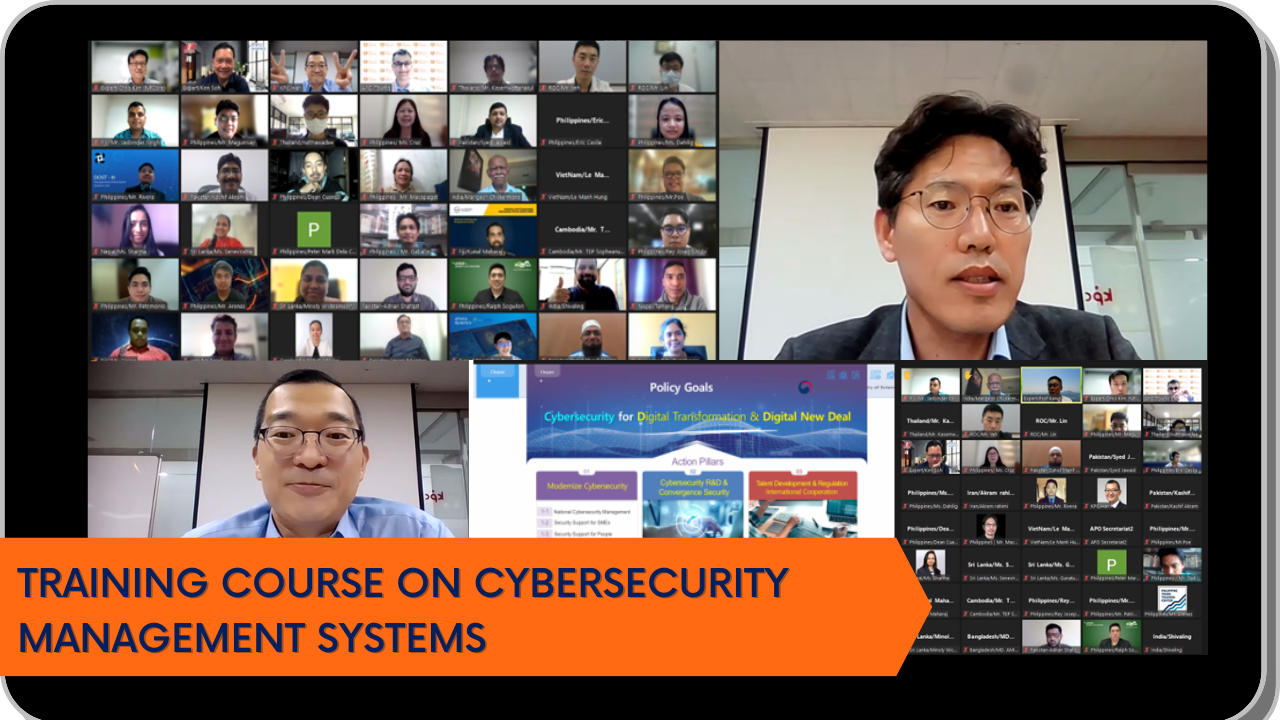
Select Page

The Korea Productivity Center and APO Secretariat conducted a training course on Cybersecurity Management Systems, 16–19 May. The course gave an overview of the knowledge and skills necessary to develop robust cybersecurity strategies and policies tailored to specific contexts and shared best practices and resources for tackling cyberthreats and strengthening national and regional cybersecurity resilience to safeguard productivity and support economic growth. Participants learned how to align cybersecurity strategies, policies, and tools with organizational goals and objectives.
The course was attended by 41 participants from 12 APO member economies, including IT and cybersecurity policymakers, government officials, IT consultants from NPOs, and cybersecurity managers involved in training and consultancy services. It was facilitated by five resource persons, two from the ROK, two from Singapore, and one from the USA. They explained key concepts and trends in effective cybersecurity management, gave real-life cyberattack examples enabling participants to identify common gaps in cyberprotection fundamentals, and discussed the top 50 cybersecurity threats and countermeasures. The online course also introduced National Institute of Standards and Technology and ISO 27001 guidelines.
Cybersecurity and productivity are key aspects of any organization, regardless of industry. Cyberattacks cause financial losses, legal or regulatory violations, and reputation damage, all of which have negative impacts on productivity. According to reports published by McKinsey and Cisco in 2021 and 2022, damage from cyberattacks was projected to reach approximately USD10.5 trillion annually by 2025, a 300% rise from 2015. Forty-three percent of cyberattacks target small organizations, while 47% of small enterprises are unprepared for them. The training course aimed to help APO members create and maintain effective risk management strategies by understanding organizational vulnerabilities, monitoring and analyzing potential threats, and implementing appropriate safeguards.